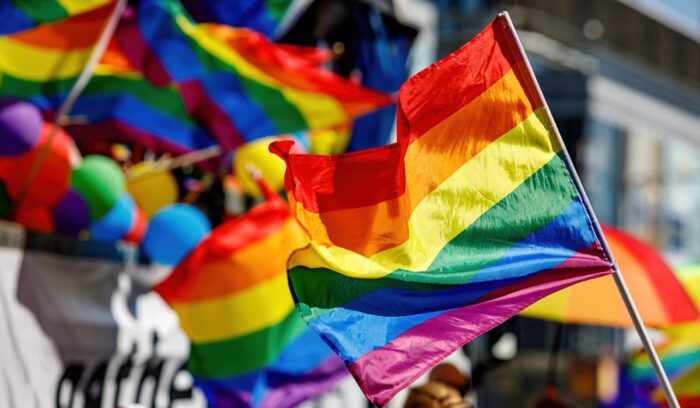Good News for Humankind
The world’s latest milestones for climate, justice, freedom, peace, health, and more
September 23 – 29 2024 C.E.
Hi beautiful people,
Our actions are usually motivated by our wants, cravings, or shoulds. Our wants are what we actually desire to do considering the broader trajectory of our lives. Cravings are wants that we don’t actually want. Shoulds are everything we believe we must do in order to be accepted, worthy, good, successful, etc.
In today’s world, it’s common to be ruled by our cravings. We so easily get addicted to foods, substances, screens, etc. that we want in the moment. It’s also common to be ruled by our shoulds. We so want to succeed and be accepted that we adopt someone else’s version of what’s good and right.
What is much rarer is actually living according to our authentic wants. And let me be clear: I do not mean just doing whatever feels good at the moment in some hedonistic binge. I mean consistently building the life and career we actually want for ourselves. Not what our parents want for us. Or our bosses. Or society at large. I mean actually living the lives we truly want for ourselves, unapologetically.
This might seem even insultingly simple. But be honest. Have you actually been doing what you genuinely want to do? Or have you been hijacked by your cravings or what someone else wants or expects of you?
I’m willing to promise that your life will be much more fulfilling, easeful, and successful if you trust your wants. What might it look like to try it out this week?
Love, Peter
Calendar
- GET S*** DONE: Anti-Procrastination Group: Monday, September 30 from 12:30-2pm via Google Meet. Respond to this email for details.
Thailand becomes first Southeast Asian country to legalize marriage equality
The bill legalizing same-sex marriage was passed by Parliament earlier this year, and King Maha Vajiralongkorn has now made it law by providing Royal Assent. It will take effect in 120 days, with the first weddings being expected to take place in January. The move means that marriage laws will no longer use terms like “husband” and “wife” and such terms have been replaced with inclusive, gender-neutral language such as “partner.” Same-sex couples now have the same legal rights as their heterosexual counterparts, such as adoption and inheritance rights.
EV and plugin car sales are booming in China
August saw plugin vehicles hit a record 54% market share in China. Full electrics (BEVs) alone accounted for 31% of the country’s auto sales. This pulled the 2024 share to 46%, and with the market with plenty of room for growth, the year should end at around 50%. At this pace, the Chinese market is projected to be fully electrified around 2030.
U.S. overdose deaths plummet, saving thousands of lives
For the first time in decades, public health data shows a sudden and hopeful drop in drug overdose deaths across the U.S. National surveys compiled by the Centers for Disease Control and Prevention already show an unprecedented decline in drug deaths of roughly 10.6% last year. That’s a huge reversal from recent years when fatal overdoses regularly increased by double-digit percentages.
Honduras launches plan to eliminate deforestation by 2029
Honduras this year launched a plan to eliminate deforestation by 2029, with a special focus on recovering land used by criminal groups for timber trafficking. The plan aims to evict groups living and working in protected areas and to “neutralize and establish control” of roads where timber is trafficked. Officials have already carried out hundreds of operations and arrested dozens of people tied to organized crime.
The Hague becomes world’s first city to pass law banning fossil fuel-related ads
New legislation in the Dutch city spells the end of publicly and privately funded advertising for petrol and diesel, aviation and cruise ships in city streets, including on billboards and bus shelters. It takes effect from the start of next year. It is the first time a city has banned high-carbon advertising through local legislation. The decision follows a call by the U.N. chief, António Guterres, earlier this year for governments and media to enact such bans, as they have done with tobacco.
Washington state considers rape kit backlog ‘essentially eliminated’ 30,000 tests later
In a moment Washington state officials say has been a long time coming, the state’s crime lab in Vancouver is declaring its sexual assault kit testing backlog “essentially eliminated.” Over the past decade, the lab has tested more than 30,000 kits. In 2019, House Bill 1166 required rape kits to be tested within 45 days as of May 2022. Today, the Washington State Patrol’s Vancouver Crime Lab reports 95% of kits are tested and DNA entered into a database in 45 days.
The Supreme Court of Nepal extends no-construction zones along major rivers in Kathmandu Valley
The ruling introduces an additional 66-foot buffer zone, which would impact thousands of households, raising concerns about property rights and potential displacement. While environmental campaigners have welcomed the court’s decision as a crucial step toward saving the rivers of the valley, where encroachment and dumping of untreated solid and liquid waste is rampant, the federal government, under pressure from the local people, has filed for a review of the decision.
In world first, stem cells reverse woman’s diabetes
In the first trial of its kind, Deng Hongkui, a cell biologist at Peking University in Beijing, and his colleagues extracted cells from three people with type 1 diabetes and reverted them into a pluripotent state, from which they could be molded into any cell type in the body. Now, a 25-year-old woman with type 1 diabetes started producing her own insulin less than three months after receiving a transplant of reprogrammed stem cells. She is the first person with the disease to be treated using cells that were extracted from her own body.
Share of coal in Australia’s main grid falls below 50% for first time
The share of coal has remained stubbornly high over the past decade, and still remains at more than 56% over the last 12 months, though down from its peaks of nearly 90% in the early 2000s. But over the past week, in the midst of strong winds across the south of Australia and the continuing growth of rooftop solar, the average share of coal generation in serving native demand on the main grid fell to 49.9%, according to industry observer Geoff Eldridge, of GPE NEMLog.
Bus rapid transit stations in Dar es Salaam, Tanzania are getting EV charging stations
Tanzania has one of the most advanced Bus Rapid Transit systems on the African continent. Known as the DART, Dar Rapid Transit Agency began operations in 2016 and has 29 stations around Tanzania’s largest city, Dar es Salaam. In a significant step towards promoting sustainable transportation in Tanzania, the DART has signed a landmark contract with TRÍ to install an advanced electric charging system within the DART infrastructure.
The Netherlands became the world’s first country to legalize same-sex marriage (2001 C.E.)
No country recognized marriage between two people of the same sex prior to the 21st Century, but a law to legalize marriage equality passed the Dutch legislature in 2000 and went into effect several months later. Since, an estimated 20,000 same-sex couples have gotten married in the last 20 years in the European country.
All of the world’s countries formally legalize same-sex marriage (2065 C.E. ???)
The world’s last countries affirm the right of all adults to love who they love and marry the partner of their choice. The achievement not only offers justice and liberty for hundreds of millions of people, but further reduces the stigma against LGBTQ citizens around the world, fostering improved mental health and reducing bullying and violence.
These milestones have been added to the Archive of Human Genius – our database of social change milestones – past, present & future.
Subscribe
Our newsletter featuring good news from around the world
The latest laws, policies, science, and technology leading the way toward our brighter future



